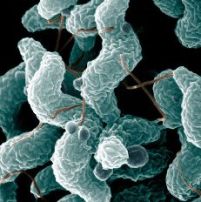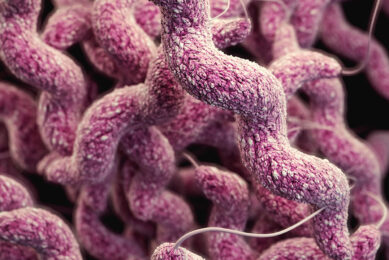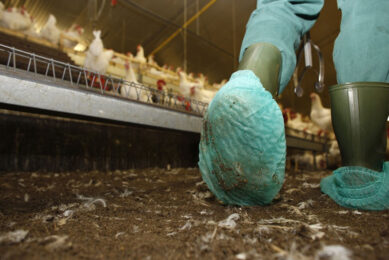Bacteria worse in stressed chickens

Food poisoning bacteria become more invasive in animals that are stressed, according to new research from the University of Bristol in collaboration with the UK poultry industry.
Led by Professor Tom Humphrey from the University’s Department of Clinical Veterinary Science, the research examined the behavior of Campylobacter in chickens, of which there are approximately 400,000 cases of Campylobacter food poisoning in the UK each year.
Improperly cooked poultry is an internationally important infection vehicle, particularly because this organism can be found in chicken muscle. Studies on bacteria like Campylobacter are traditionally carried out in conditions thatmay not reflect the production environment.
Research in many countries has shown that after transport, levels of bacteria like Campylobacter are higher in the gut of food animals than on the farm. Work at Bristol has demonstrated that this may be associated with the release of the stress hormone noradrenalin. This hormone makes Campylobacter grow more quickly, become highly motile and invasive, leading to an increase in its ability to cause disease – its virulence.
A further finding in the studies at Bristol is that Campylobacter can interact with other organisms in the gut of food animals. When this happens it can become even more infective. The results of this study provide vital information to enable the control of infection in the production environment, making chicken safer and decreasing cases of food poisoning.
The UK poultry industry is working hard to control Campylobacter. It is essential that this effort is supported by UK scientists and that research involves industry and is relevant to commercial production,” said Professor Humphrey.
Source: University of Bristol













